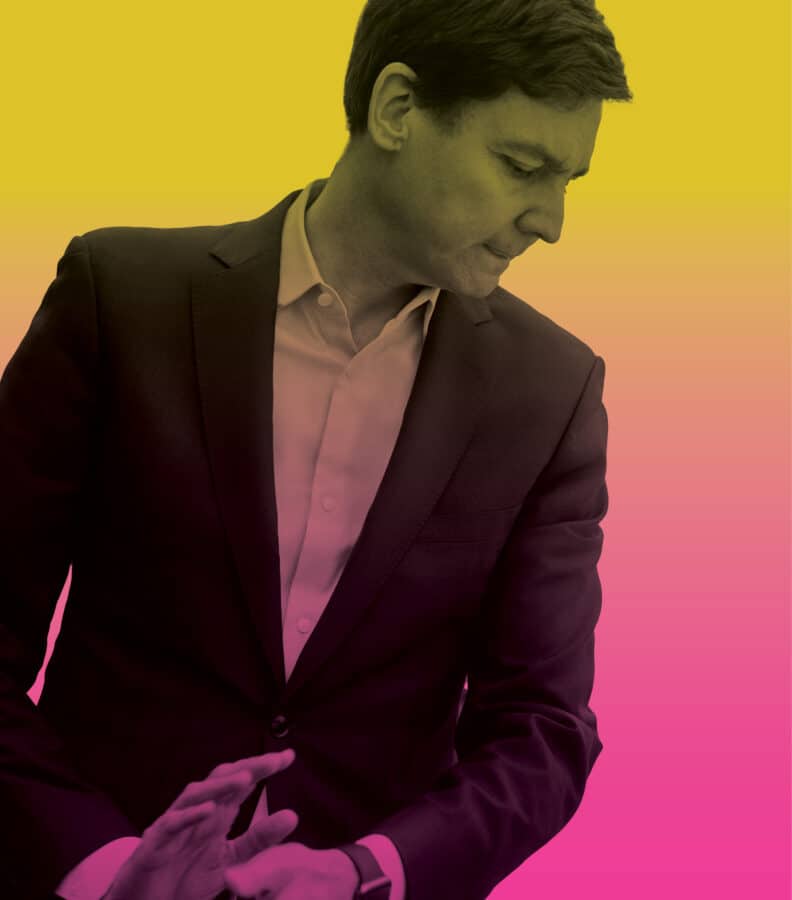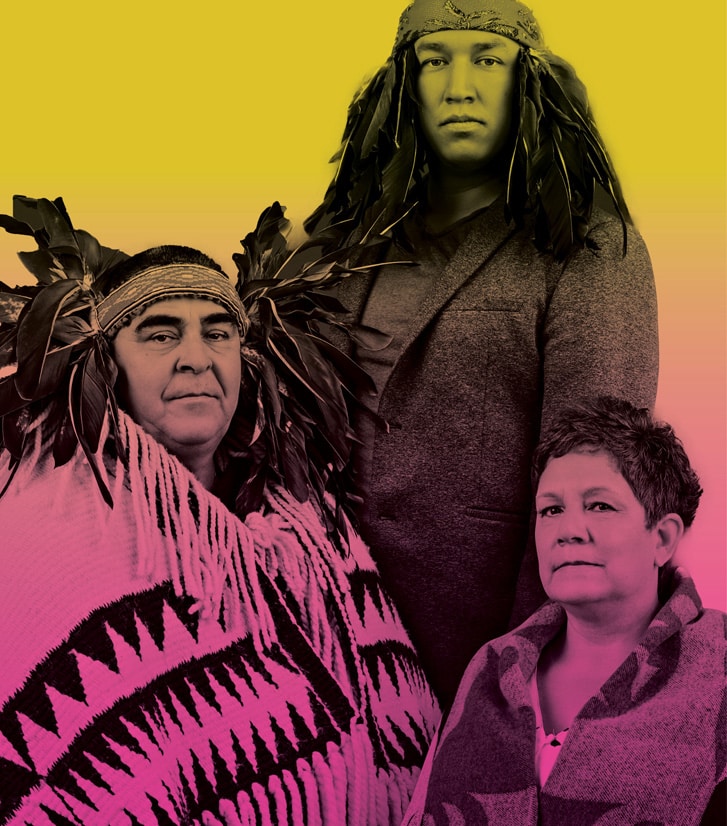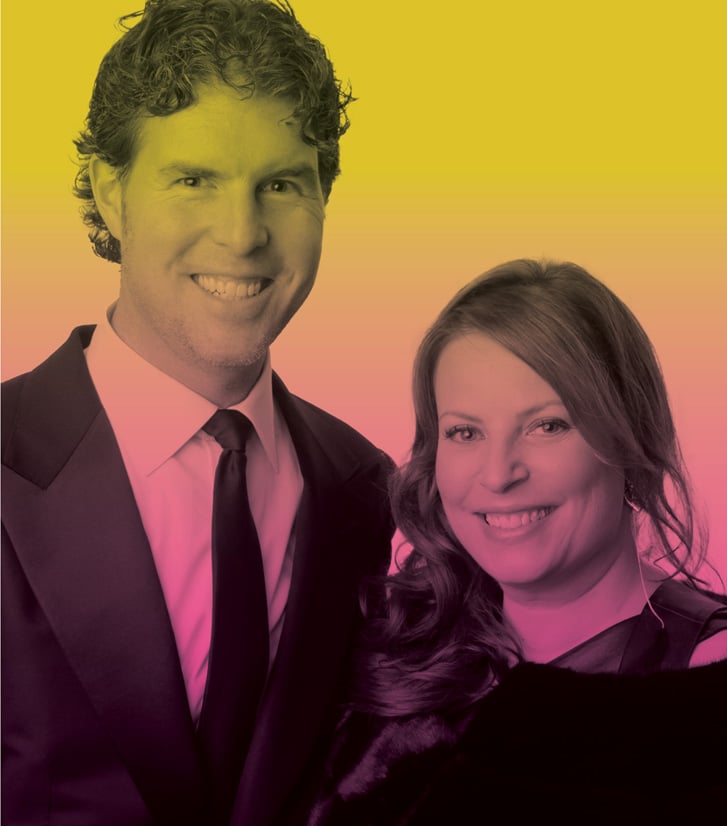By the Editors, (VANCOUVER MAGAZINE) — The Power 50 list today looks a lot different than it did back in 2001, when this tradition began. While once it was a veritable lookbook of CEOs, today, we recognize that power can reveal itself in a range of ways. Of course, politics and business continue to shape our city, but it’s easier, now, to see power in modern dance, in policy-making, in community-building, too. So yes, you’ll find both the mayor and a meme account here on our ranking of the city’s biggest power-players—but that’s the way we like it
Vanmag’s 2024 Power 50 List
1. David Eby
For taking the ball and running with it

Premier of B.C.
Previously #2, 2023
One of the advantages of becoming premier mid-mandate—without having to craft your own platform and face the verdict of voters—is that you can test drive a few policies first. David Eby took the reins from John Horgan in November 2022, halfway between elections, and he’s been a whirlwind of activity ever since.
While it often seems like housing is Eby’s single focus—with a tax on speculation, legislation to reduce short-term rentals, province-wide zoning changes, plus a new multibillion-dollar provincial housing construction program set to launch in early 2024—he’s also taken on the challenge of credentialing with gusto, introducing legislation last fall aimed at reducing barriers for internationally trained professionals. And under his leadership, the NDP started providing funds for free prescription contraception in April—a first for Canada.
Some of his moves feel like political gimmickry—such as the $100 BC Hydro credit or his PR campaign against the independent Bank of Canada, demanding lower interest rates—but there’s little doubt that Eby is a compelling communicator. He ranks as one of Canada’s most popular premiers and is far outpacing the opposition (though he and the NDP benefit from a splintered centre-right vote). Eby is also credited, by our panel, for making a concerted effort to elevate younger, more diverse voices within cabinet (see Niki Sharma, #7, and Bowinn Ma, #11)—a contrast to Horgan, who relied on many 1990s stalwarts for key posts. Still, two years is a lifetime in politics—and Eby has to hope that the sour mood of voters, which has felled long-serving incumbents from Manitoba to Argentina, dissipates by the time B.C. voters step into the polling booth this October.
2. Musqueam Indian Band, Squamish Nation, and Tsleil-Waututh Nation and MST Development Corporation
For reimagining what’s possible

First Nations governments; developer
Previously #3, 2023
Though the governments of Musqueam Indian Band, Squamish Nation and Tsleil-Waututh Nation are powerful independently, together, they hold a particularly potent authority over the region. And while the MST Development Corporation—a privately owned, for-profit development arm—operates at a distance from these three governments, it couldn’t exist without the impressive framework the nations have created (or without the input of the Musqueam, Squamish and Tsleil-Waututh representatives who sit on its board). On paper, they may be distinct entities, but together, they’re building a legacy.
The list of projects MST Development Corp. is involved in at this point in history is staggering. Its real estate portfolio is worth an estimated $5 billion. There’s the ongoing development of St. Paul’s, the 10,000 homes slated for the Jericho Lands, the involvement with the Broadway subway line, the influence on the Vancouver Art Gallery design, the bid for the 2030 Olympic Games. But what keeps them on the tip of every conversation about power is that they aren’t just reshaping the city—they’re redefining what’s possible. Last year, MST’s big move was something never seen before in Vancouver: pitching a development that is bigger and higher than in their first proposal. The vision for Jericho Lands is for 13,000 new homes (up from the previous concept of 10,000) that sprawl over 13.6 million square feet and 49 storeys. Also in the new plan is a proposed rapid transit station, an elementary school and neighbourhood amenities that include grocery stores, retail shops and even a hotel. Basically, MST is thinking far bigger than housing—it’s creating a whole neighbourhood. In a city that’s chronically housing-deficient, these commitments will be a game changer.
And while the Jericho Lands project is one that won’t be completed for at least two decades, it’s already shaking up the city, with rezoning phases already in progress and powerful partnerships gelling into place.
Insiders say that meetings with MST leadership are among their most important and impactful. If this is the case now, just imagine what power the organization will hold when their portfolio reaches its estimated future value of $30 billion.
3. Ryan and Cindy Beedie
For building big and giving back

Beedie
Ryan, previously #35, 2023; Cindy, new
Ryan Beedie’s name is all over the big new developments in Mount Pleasant and the AbCellera lab, as well as a controversial development permit for condos at 105 Keefer that will likely reshape Chinatown. But he and wife Cindy have been moving ground outside of the property game, too. The couple’s philanthropic work is among the most visible in the city, thanks to swishy high-profile events like their Rock ’N’ the Park, which brought Bryan Adams to Malkin Bowl and raised $2 million for the Food Bank. Elsewhere, the developer broke ground on the new YWCA Cindy Beedie Place, a sanctuary for women and children fleeing violence that will feature 56 long-term affordable units; made a $5-million donation to a long-term care facility in Delta; and gave away $6.9 million in student scholarships last year.
To view the full article, click here.